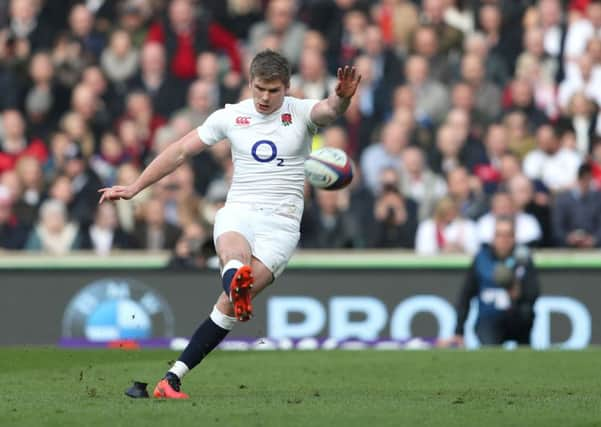David Martin: Tackling the issue. A whole new ball game as rugby flourishes in schools


It’s fair to say that nothing in life comes without some risk, particularly sports.
I imagine even the mildest game of tiddly-winks could unwittingly blind an opponent with a particularly aggressive shot.
My point – where will this all end?
Advertisement
Hide AdAdvertisement
Hide AdRisk assessments ensure the mitigation of risk and appropriate teaching ensures that safety is paramount.
We are in very real danger of creating a society of individuals who are suffocated by health and safety guidelines and not equipped for adult life.
At Ghyll Royd School our children are taught rugby by one of our coaches, who are trained specifically to teach primary age children the rules of engagement in a safe and fun way.
Many of our children also play at partner clubs at the weekend which ensures consistency in training and teachings.
Advertisement
Hide AdAdvertisement
Hide AdSurely the answer lies in ensuring that the rules of the game are adhered to and that players, coaches, parents and teachers are educated about and are aware of the important safety aspects of the game.
Equally players and parents must learn to respect the referee’s decision and understand the importance of their role in the safety of the game.
For example a referee will meet with front row players prior to a match to ensure they know how to safely present a scrum, a practice which has seen a huge reduction in the number of spinal-related injuries within professional rugby.
With 2.5 million players, England accounts for 30 per cent of the world’s rugby union players, of which an estimated 1.2 million are children.
Advertisement
Hide AdAdvertisement
Hide AdRugby has always been a key element of boys’ sport, particularly with the independent sector like Ghyll Royd.
Rugby is included within the curriculum whilst adhering to the strict rules set by the Rugby Football Union, with contact rugby introduced to children in Year 4.
This gradual introduction ensures that regardless of the age-related guidelines defined by the Rugby Football Union that rugby coaching is ability-led and linked to a child’s confidence.
As a teacher of rugby, you have to ask ‘Is this child able and willing to do this?’
Advertisement
Hide AdAdvertisement
Hide AdWhat is important is ensuring that children have a diverse range of sports in which to participate which allows them to find and shape their individual talents.
Rugby has never been safer. Last year the Rugby Football Union launches it ‘Don’t be a Headcase’ campaign detailing the importance of safeguarding players on their return after concussion, especially young players.
The new guidelines stipulate a minimum 23 day absence from play for any player under 19 years of age. Here a gradual return to play is encouraged as and when the player is fit and ready to do so.
All types of sport benefit children in a variety of ways, building self-confidence and promoting mental and physical well-being.
Advertisement
Hide AdAdvertisement
Hide AdTeam sports also provide children with additional social benefits.
It teaches them a range of skills transferable to many other area of life, including working together and developing relationships; it often encourages greater academic focus, engenders respect and teaches the valuable life skill of how to be gracious in defeat.
In recent years, Great Britain has seen tremendous success on the world stage for sporting achievements including cycling, tennis, swimming and gymnastics.
The London Olympics saw a rise in children taking part in a variety of sports at grassroots level. This passion and enthusiasm needs to be nurtured and developed if we as a nation are to continue to develop future champions.
Advertisement
Hide AdAdvertisement
Hide AdWe are always thrilled when our children are awarded sports scholarships as they move onto secondary school as we know we have done our bit nurturing of a potential start of the future.
As we look forward to the Rio Olympics later this year, Ghyll Royd School will be looking to bolster enthusiasm and participation in its wide range of sports, not just rugby and encouraging children to aim high, dream big and believe that one day it could be them on the winning podium collecting gold for Great Britain.
David Martin is headteacher of Ghyll Royd School in Burley-in-Wharfedale.